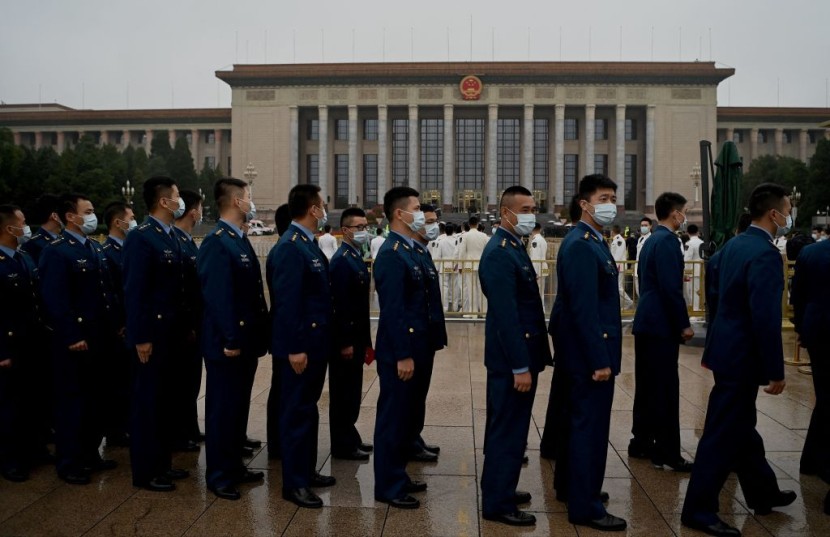
A historic court ruling reveals how China has utilized espionage to achieve a military and economic advantage over the United States and the rest of the globe.
US counterintelligence authorities were successful in luring Yanjun Xu, a top Chinese intelligence officer, out of China in 2018 and obtaining his extradition to the US to stand trial for attempting to steal advanced military technology.
This is only the latest in a long line of Chinese espionage operations aimed at stealing industrial and military secrets from the United States, its allies and partners, and even Russia - thievery that has allowed China's military to swiftly build up its arsenals of modern weapons.
China continues to exploit US universities
On November 5, a federal jury found Xu, the deputy division director of the Sixth Bureau of the Jiangsu Province Ministry of State Security (MSS), the Chinese Communist Party's primary intelligence agency, guilty of "conspiring to and attempting to commit economic espionage and theft of trade secrets."
The Chinese intelligence official was orchestrating an attempt to acquire access to a General Electric Aviation composite aircraft engine fan, a piece of technology no other corporation has been able to reproduce, as per Business Insider.
A Chinese university professor invited David Zheng, a GE Aviation employee, in 2017 to make a lecture at the Nanjing University of Aeronautics and Astronautics. The attempt was made using LinkedIn, which has become a popular way for Chinese intelligence to discover international targets, including Americans.
According to the report, 34 US universities continue to collaborate with Confucius Institutes (CI), which are CCP-sponsored organizations that aim to foster educational and cultural linkages throughout the world.
Four American universities, including Stanford University, the University of California, Santa Barbara, the University of Utah, and Pacific Lutheran University in Washington, have open partnerships with Chinese universities that have been identified as allegedly supporting China's nuclear program.
The University of Utah will conclude its cooperation with the Confucius Institute in June 2023, when its contract expires, according to a spokesperson. "We haven't had any worries about the U's institution becoming a center for espionage or propaganda," he continued, Fox News reported.
Between 2018 and 2021, the number of institutions in the United States that allowed CI programs decreased as Congress approved laws prohibiting universities from receiving certain forms of Department of Defense (DOD) funding if they hosted CCP-sponsored institutes. Seventy-nine CI programs were closed as a result of the legislative change.
US universities continue collaborating with Chinese universities
CI programs are not unlawful, and universities who continue to collaborate with their "sister" programs can do so since they were not affected by the DOD budget cuts. However, the report's author, Craig Singleton, believes that further measures are needed to protect information that the United States does not consider sensitive.
According to the report, several universities have links to Chinese entities involved in nuclear weapons research. The University of California, Santa Barbara has maintained a cooperation with Shandong University, which works on China's nuclear weapons development, since 2014.
Congress has cut Defense Department research funding for institutions that house Confucius Institutes. According to the research, the law and increased scrutiny from legislators resulted in the closure of dozens of institutes, with the number falling from 113 to 34 since 2018.
However, of the 78 colleges that announced the closure of their Confucius Institutes, 28 have retained or extended their affiliations with Chinese sister universities, including those with ties to China's defense sector.
Purdue University closed its Confucius Institute in 2019 but maintained its academic collaboration with Shanghai Jiao Tong University (SJTU). According to the article, the Chinese university has three defense laboratories, a collaborative military research agreement with the Chinese military's college of military science, and the dean and head professor of its school of information security formerly worked for the Chinese military.
However, 28 of the 78 institutions that announced the closure of their Confucius Institutes have kept or expanded their ties with Chinese sister universities, including some with ties to China's defense sector.
Per NBC News, Purdue University's Confucius Institute dissolved in 2019, however the university's academic relationship with Shanghai Jiao Tong University continued (SJTU). The Chinese institution has three defense laboratories, a joint military research agreement with the Chinese military's college of military science, and the dean and head professor of its school of information security formerly worked for the Chinese military.
Related Article: US-Japan Hold Military Drills Amid Escalating Tensions Against China, Russia; Tokyo Voices Support for Taiwan
@YouTube








